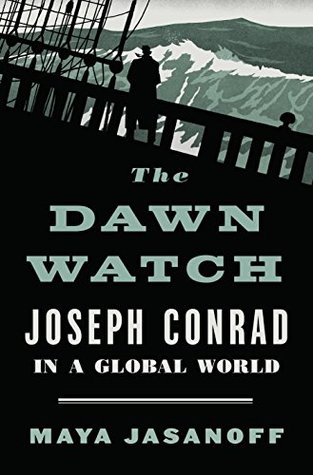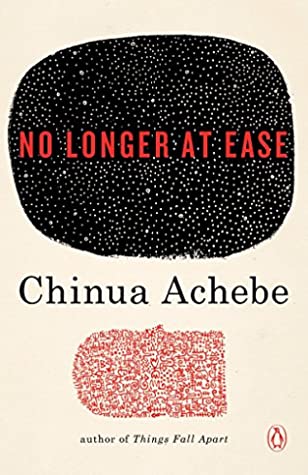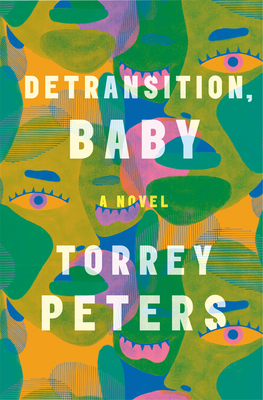Grab bag (Book Reviews)
Book #1: The Dawn Watch by Maya Jasanoff

I found reading about Conrad much more interesting than actually reading Conrad. Maya Jasanoff’s The Dawn Watch (2017) is a fascinating intersection between literary biography and history. As a historian at Harvard, Jasanoff’s work strikes the right balance between popular reading and scholarly research. Conrad, born Józef Teodor Konrad Korzeniowski, is one of those authors (like Nabokov) whose mastery of the English language is somewhat galling for native English speakers. To further add to the irony of Conrad’s “Englishness”, his stories and professional career are centred around that most British of experiences: a life at sea. While Conrad’s writing is celebrated, even Jasanoff acknowledges her initial forays into his works were a challenge. In a previous review I noted that some parts of his short stories Youth and The End of the Tether are almost unreadable. I can also sympathise with those who would like to see Heart of Darkness removed as a canonical work from the African literature syllabus, as it does not strike me as particularly “African”. All that being said, Jasanoff does a good job at convincing me that Conrad’s life and themes deserve a critical re-appraisal.
The Korzeniowskis, were proud descendants of the Szlachta, a type of Polish nobility. Unfortunately, being of royal lineage in central Europe starting from around the time of Napoleon has usually involved a downward trajectory. Polish nationalism in the 19th century was suppressed by the Russian empire and Conrad’s family was deported to what is now the Ukraine on account of Conrad senior’s insurrectionist behaviour. Always a dreamer and a romantic, Conrad almost followed the path of his rebellious ancestors but was kept out of too much trouble by his maternal uncle Tadeusz. As one expects of artistic types, Conrad was constitutionally incapable of managing his finances and soon found himself in significant debt. Perhaps to escape his creditors, perhaps to escape himself, Conrad went to sea with the French merchant marine. A long career at sea followed . Eventually Conrad joined the British merchant navy which gave him the opportunity to perfect his third language.
Conrad didn’t begin writing his first novel until 1889 when he was 32. Although success came to Conrad later in life, he eventually became firmly ingrained with the English literary establishment. For example, he sublet Pent Farm from Ford Madox Ford, who in turn was the nephew of Dante Gabriel Rossetti and Christina Rossetti. He even worked at Christina’s writing table. Living near to Pent farm was Henry James, H. G. Wells, and Stephen Crane. Interestingly, all these authors shared the same literary agent: James Brand Pinker.
No one was more baffled by Conrad’s success at the end of his career than the man himself. How could clearly derivative material earn six times as much as what he considered to be his best novel? Though we can understand why English-speaking audiences of the Edwardian era were enchanted with novels taking place on perilous seas in faery lands forlorn, do these Victorian plot lines still pay dividends to the modern reader? Jasanoff believes so.
Nostromo wasn’t just Conrad’s only novel about a place he’d never been. It was a novel about every place he’d been. It exuded the political cynicism of the Pole who’d seen his parents wrecked by unattainable nationalist ideals. It projected the nostalgia of the man of sail who saw the craft he admired displace by industrial technology. It trembled with the shock and revulsion of the white European who saw values of “civilization” and “progress” turned into weapons of mass destruction in Africa and beyond.
The secret to Nostromo’s extraordinary prescience was that Conrad folded between its covers his own “theory of the world’s future.” In the world to come, the better values that Conrad associated with British power would become obsolete as the romantic dreams of Garibaldi. Instead he anticipated the ascent of an American-led consortium of “material interests.” “Material interests” would dictate the fortunes of the new nations. They would make imperialism continue to thrive whether or not it had the word “empire” attached to it. The real question for the world’s future, in Conrad’s theory, wasn’t what would happen. It was when and how.
Book #2: No Longer at Ease by Chinua Achebe

No Longer at Ease is the final volume in Achebe’s “African Trilogy” which follows the multi-generational story of the Okonkwo family. Obi Okonkwo, the grandson of Ogbuefi Okonkwo from Things Fall Apart has just returned from England with a degree in English literature. We learn that Obi’s financial sponsors, the Umuofia Progressive Union, had hoped for Obi to study law. This is the first indication that, like his forefathers, Obi’s modern sensibilities will clash with the traditional expectations of an Igbo village. Nevertheless, an English education, whatever the degree, is a highly prised social good that has brought pride to the village of Umuofia. Obi is expected to obtain a job in the civil service and both pay back the cost of his education as well as contribute to costs of his siblings’ education. No Longer at Ease takes place during Nigeria’s transition to independence (sometime in the 1960s). Obi belongs to the new class of Nigerian elite who have studied overseas and are slowly acquiring the “white man’s” jobs and all their associated perks.
“Have they given you a job yet?” the chairman asked Obi over the music. In Nigeria the government was “they.” It had nothing to do with you or me. It was an alien institution and people’s business was to get as much from it as they could without getting into trouble.
It isn’t long after Obi starts working for the Scholarship Board that his ethics are tested when a desperate family member approaches him on behalf of a sister he wishes to “ensure” a scholarship for. The bribe is easily rebuffed by Obi who sees such behaviour as inimical to the modern vision of the Nigerian state he has in mind. As Obi continues to avoid taking advantage of his position, his financial situation becomes increasingly tenuous. Yet Obi is mostly responsibility for his money woes. The cost of owning and insuring a car at the time was tremendous, but Obi sees this as a necessary face saving measure that his patrons would have wanted, for Umuofia’s sake of course. His finances are further stretched as he prepares to marry Clara, who we later learn belongs to a untouchable caste in Igbo society. A final series of unfortunate events cause the last flicker of idealism to go dark in Obi. No longer shackled by modern pretensions Obi fully takes advantage of his position both financially and sexually. In the final scene, Obi is arrested by the Nigerian police. His friends and family are shocked to learn of his perfidy. What a falling off was there.
Like all of his over novels, No Longer at Ease is short in length, but deep in content. Achebe’s works are brilliant because they provide an honest portrayal of how changes history unfolds on both the individual and social level. We get to see how the ideas of Christianity interact with an animist religious system. Which members of a village convert first and why? Do the new Christians abandon all of their traditional practices or maintain some rituals? Throughout No Longer at Ease, Obi’s father a stern catechist who refuses to partake in any idol worship that is still common in Umuofia. Yet, at the end of the book he surprises his son by upholding the prejudices of the caste system which goes against the tenants of Christianity. Obi’s desire to live an independent life is limited by the social customs of the Igbo people and his financial obligations to Umuofia. Villagers repeatedly express their concern that the modern places of employment like Lagos lead their kin astray. Within three generations, the “African Trilogy” reveals the immense social change that occurred from colonialism to independence.
No Longer at Ease is mostly narrated in the form of Obi’s internal monologue. Achebe uses this wonderfully to show how each subsequent failure causes Obi’s thoughts to warp to increasingly cynical and desperate conclusions. The book is a classic tragedy in the sense that Obi’s fate is as inseparable as the cultural expectations and pressures he is trying to escape from. A desire for total social freedom reveals itself as the path to perdition.
Other books

 </p>
</p>
Though I've forgotten most of the details of *The Address Book* by Deirdre Mask, there were a interesting facts I felt were worth noting down. According to Kevin Lynch (*The Image of The City*) there are five components that make up an observer's mental image of a city:
1. Paths (streets or walkways)
2. Nodes (a junction or crossing)
3. Edges (a river or railway track)
4. Landmarks (taco shop, distant mountain)
5. Districts (Soho, downtown)
It is worth pondering whether one can think of a different category that could not be classified as one of these five. The book also made the interesting point that last names are a fairly modern invention, having been created by bureaucratic nation states, and usually with a nefarious origin:
> In the United States, federal officials openly despised Native American naming practices, which were often gender-neutral and fluid (Five Bears might become Six Bears ... after a successful hunt) and forced them to change names as part of a grander "civilizing project." Prussia allowed Jews to be citizens in 1812, in exchange for taking fixed surnames. An edict of 1833 required all Jews, not just those who were nationalized, to take surnames for a list the government chose them, like Rubenstein and Bernstein. But soon after, in 1845, Jews were legally confined to a closed list of surnames, names they could not change, setting them up for effortless identification later by the Nazis.
Though *Detransition, Baby* by Torrey Peters is not the sort of book I usually read, I did find it helpful in providing a better understanding of queer and trans culture in what can otherwise seem like a bewildering array of sexual subcultures. There is also a remarkably insightful quote that rings true for me:
> \[T\]o have a boss is so commonplace that one rarely remarks on its strangeness, yet its structure compels a cult of personality around even the most quotidian of managers.
